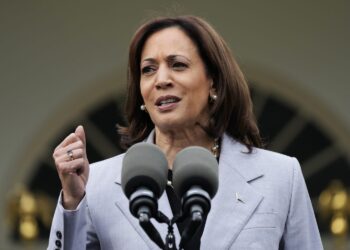Ask any follower of Premier League action to name three Championship teams, they would like to return to the top-flight, and many will name Leeds United. Those that do not name Marcelo Bielsa’s men in such a list will invariably have them in a list of Championship teams they would like to see relegated in 2021. Some original thinkers may even include them in both lists.
That just about summarises how people feel about Leeds. They are the team many outside the great footballing city love to hate, but simply cannot imagine football without. We look today at the origins of Leeds’ most notable rivalries.
Caption: As documented by Copa 90 back in 2018, Leeds are said to be amongst the most hated clubs in the United Kingdom.
Black moods overshadow all-white clashes
Today’s Leeds fanbase is exceptionally vocal, and while the likes of Liverpool may be amongst the outright favourites in Premier League odds markets, the White Army can easily match the Kop or the Stretford End on its day.
Vocal though Leeds may be, the club’s current fanbase pales in comparison to the seething masses that took to the Elland Road terraces in the 1970s. Back then, Leeds was the ultimate acid test, both on and off the pitch, with the late Norman ‘Bites yer Legs’ Hunter being one of club captain Billy Bremner’s most feared lieutenants.
Hunter was given said nickname by a combination of terrace culture, and one Brian Clough, whose desire to unseat Leeds with his unlikely crew of Derby County players, was well-documented in the 2009 film The Damned United.
Clough’s outspoken nature, desire for ‘fair’ play, and ultimate success in his goal of making Derby champions in lieu of Leeds, sparked a rivalry that defied a gap of 75 miles. Never once has a Derby-Leeds fixture gone without a preamble that mentions this golden period for both clubs.
Millwall v Leeds – The ‘big one’?
The two clubs have spent just seventeen seasons in the same league, but every clash has been memorable. However, it was in 2004 that the for-now simmering rivalry escalated, with Leeds suffering demotion from the Premier League. They rolled into a second-tier containing a Millwall fanbase still high on the success of being that season’s FA Cup runners up.
Millwall fans wasted no time in belittling their West Yorkshire counterparts, and making The Den as hostile as ever. However, it was in the late 2000s that all-out war became a genuine possibility, especially with both clubs vying for promotion from League One in 2007/08.
Neither team succeeded in their promotion charge, but both met in the playoffs the following season, meaning that there were four head-to-heads in 2008/09. The atmosphere in both legs of the semi-final was exceptionally tense, especially the second leg (at Elland Road), which was mandated to take place on a midweek night.
Some surprise additions
Leeds’ rivalry with Chelsea goes back even further than that which exists with Derby, even back to the 1960s. In the quarter-century prior to the Premier League’s establishment, the two clubs held some utterly brutal clashes. The replay of the 1970 FA Cup final at Old Trafford is seen by many as a prime example.
<iframe width=”560″ height=”315″ src=”https://www.youtube.com/embed/nfUH6I5m–M” frameborder=”0″ allow=”accelerometer; autoplay; encrypted-media; gyroscope; picture-in-picture” allowfullscreen></iframe>
Even fans of AFC Bournemouth – a relatively gentle bunch – get riled at the mention of Leeds. This is due to an infamous riot undertaken by hundreds of Leeds fans on a scorching Bournemouth bank holiday Monday, at the end of the Whites’ 1989/90 promotion campaign. While Leeds v Bournemouth is not (yet) a formal rivalry, there is no doubt that much would have been made of a league clash by the media, had Leeds gained promotion back in 2019.












